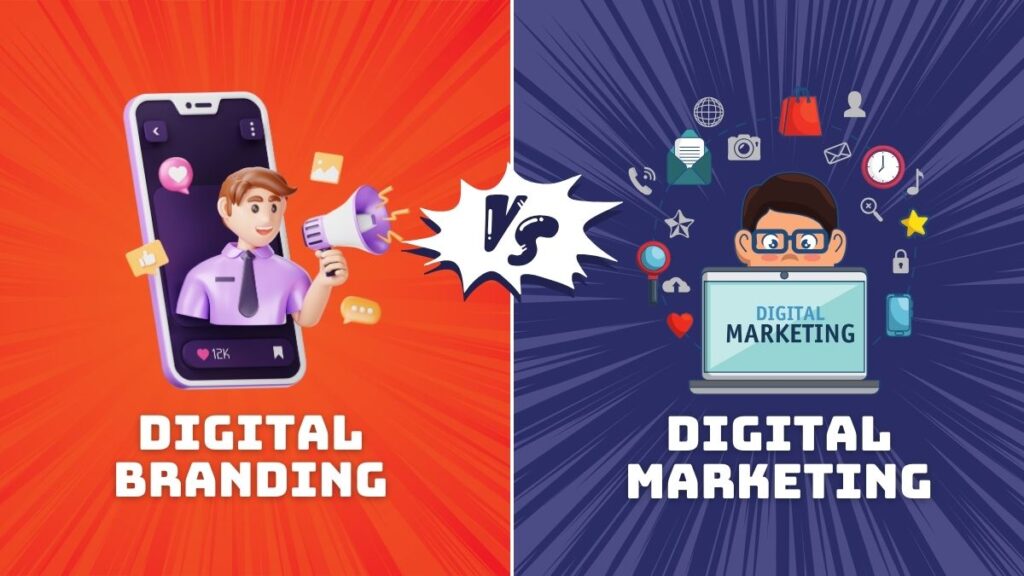Discover the difference between PPC vs SEM, and learn which strategy is best for your business. Explore key benefits, costs, and how each can drive online success.
When it comes to digital marketing, you may have heard the terms PPC (Pay-Per-Click) and SEM (Search Engine Marketing) floating around. At first glance, they might seem like interchangeable buzzwords.
However, understanding the distinction between these two can significantly affect your strategy, budget, and ultimately, your success. In this article, we’ll delve deep into what PPC and SEM truly mean, how they differ, and how they play out in the broader landscape of online marketing.
What is SEM?
Search Engine Marketing (SEM) is a broad term that refers to any digital marketing efforts to increase your website’s visibility in search engine results pages (SERPs). SEM encompasses a wide variety of strategies, including both organic and paid methods.
From SEO (Search Engine Optimization) to paid search ads, SEM allows businesses to market directly to users who are searching for keywords relevant to their products or services.
What is PPC?
Pay-Per-Click (PPC) is one specific component of SEM. This paid marketing tactic involves placing ads on search engines or other platforms, where you, the advertiser, only pay when a user clicks on your ad. The most popular form of PPC is Google Ads, which allows businesses to display ads when users search for specific keywords.
You could think of SEM as the umbrella term that covers the whole search engine marketing process, with PPC being a more specific tool within it.
What’s the Difference Between SEM and PPC?
Here’s where things can get a bit confusing. We’ll break down the difference between SEM and PPC, so it’s easy to understand.
SEM is All-Encompassing
SEM refers to the entire world of search engine marketing, including both paid ads (PPC) and organic search efforts.
PPC is Paid Search Advertising
PPC is just one method within the broader SEM spectrum. It’s entirely focused on paying for ad placements in search engine results.
Think of it this way: if SEM is a fishing net, PPC is one type of fish you’re trying to catch though the broader net (SEM) also includes SEO and other organic strategies.
| Feature | SEM (Search Engine Marketing) | PPC (Pay-Per-Click Advertising) |
| Definition | The broadest term refers to all activities involved in search engine marketing, including paid ads (PPC) and organic efforts (SEO). | A specific paid advertising method within SEM where advertisers pay for ad placements based on keyword bids. |
| Scope | Covers both paid search ads and organic search results. | Only focuses on the paid search ads aspect of search marketing. |
| Main Focus | Generating visibility through both paid and organic search strategies. | Paying for immediate visibility through paid search ads when specific keywords are searched. |
| Components | Includes PPC, SEO, and other strategies within search engines. | A single element of SEM, typically through Google Ads or similar platforms. |
| Costing Method | Includes both paid (PPC) and non-paid (SEO) activities, resulting in varied cost structures. | Involves paying only when users click on your ads. This follows a cost-per-click (CPC) model. |
| Targeting | Encompasses all methods (both organic and paid) to reach users. | Targets users who search specific keywords with the intention of ads appearing for those queries. |
| Example | Appears in organic results (SEO) and/or paid results (PPC) when a user searches for a keyword. | Advertisements shown at the top or bottom of search engine results for certain keyword searches. |
Is PPC a Type of SEM?
Yes! In simple terms, PPC is a type of SEM.
While SEM includes both paid and organic strategies, PPC advertising specifically focuses on purchasing ad space to appear in search results based on specific keywords. Many businesses utilize a combination of both paid and organic strategies to maximize their visibility and reach.
To put it in a common idiom, PPC is like the engine in the SEM train, helping drive instant results through paid advertising. On the other hand, organic strategies (like SEO) are like the train tracks once in place, they can provide steady growth over time.
How Does PPC Advertising Work in SEM?
Now that we’ve established PPC’s role in SEM, let’s discuss the practical side of how PPC works. Here’s a step-by-step guide:
Ad Creation
You begin by creating an ad campaign on platforms like Google Ads or Bing Ads. The ad will contain a title, description, URL, and relevant keywords that will help trigger the ad when users search for certain terms.
Bid for Keywords
In PPC, advertisers “bid” on keywords they want their ad to appear for. For instance, if you’re selling running shoes, you’ll bid for terms like “buy running shoes online” or “best running shoes for men.” The higher the bid, the more likely you are to appear at the top of the search results.
Ad Placement
Once your ad is live, it will be placed based on your bid and quality score, which is determined by the relevance of your ad, landing page, and keywords to the user’s search query.
Pay Per Click
Every time someone clicks on your ad, you are charged a predetermined fee, which is why this model is called Pay-Per-Click.
The beauty of PPC lies in its ability to give instant exposure. Whereas SEO efforts take time to show results, PPC can help businesses drive immediate traffic from users actively searching for relevant services.
Is PPC Always Related to SEM?
Great question! In most cases, PPC and SEM are connected. However, there are exceptions to the rule.
PPC Is Typically a Form of SEM
In almost all standard marketing campaigns, PPC falls under SEM since it involves targeting keywords for search engine visibility.
PPC Beyond SEM?
There are also instances where PPC can fall outside traditional SEM. For example, PPC display ads, like those you might see on social media or websites, don’t fall directly under the category of SEM. These ads are usually shown based on user interests or behaviors, not search queries.
So, while PPC advertising works within SEM in many cases, it’s not always tied to search engines alone.
PPC vs SEM Salary: Which Has Better Job Opportunities?
A quick look at career opportunities in digital marketing may also shed light on the lucrative nature of SEM vs PPC roles.
According to data, digital marketers with PPC expertise typically command a median salary between $50,000 to $70,000 per year, depending on experience and location.
On the other hand, SEM specialists (who usually have a more diverse skill set, including organic and paid strategies) can expect a salary range of $60,000 to $85,000.
Ultimately, salaries may vary based on experience, location, and the complexity of the work. However, roles focusing on both SEM and PPC tend to offer competitive pay given the demand for skilled digital marketing professionals.
PPC vs SEM: Which One Should You Focus On?
You might be wondering, “Should I focus on SEM or PPC for my digital strategy?” Well, there’s no one-size-fits-all answer. It really depends on your objectives:
If you’re looking to dominate search results instantly, PPC might be your best bet. It’s great for short-term goals like product launches or promotions.
If you’re aiming for long-term sustainable growth by building organic visibility, you should also consider incorporating SEO alongside your PPC efforts within a broader SEM campaign.
This dynamic duo (PPC + SEO) is often the winning formula for digital marketers. In other words, PPC and SEM work hand in hand, just like peanut butter and jelly.
Conclusion
At the end of the day, understanding PPC vs SEM can help streamline your digital strategy, focus your marketing budget wisely, and get you ahead of the competition.
Whether you’re looking to drive quick traffic or nurture long-term growth, knowing how these two fit together will give you the insight you need to succeed.As the saying goes, “Don’t put all your eggs in one basket” integrate both SEM and PPC for a well-rounded approach.
Each has its unique value, and when combined, they can create a powerful force that propels your brand forward. Get in touch with me to make it happen. Happy marketing!


